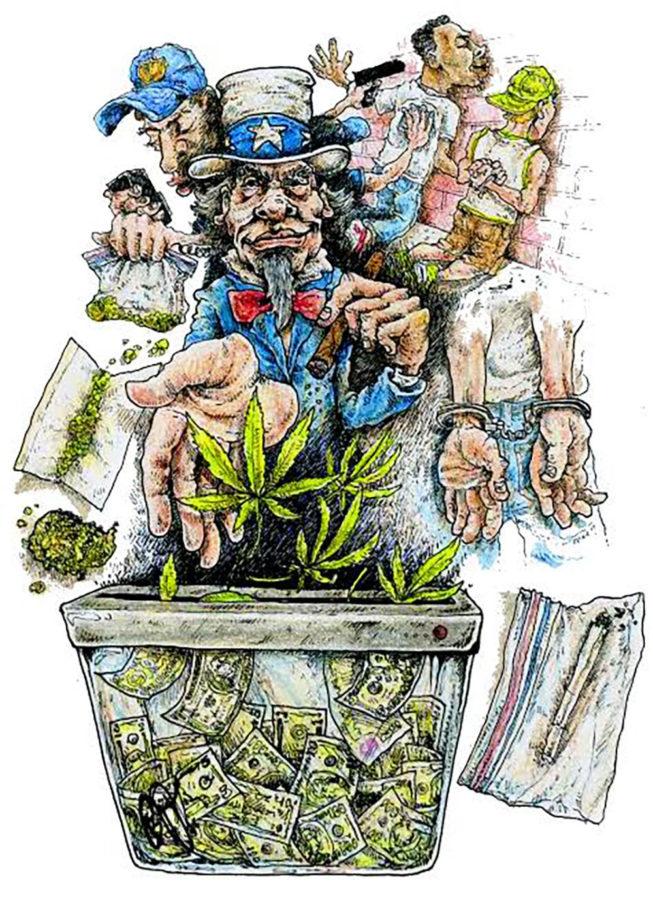Funding college more important than Drug War
October 1, 2015
Critics of the War on Drugs often point out that the efforts of the government to incarcerate drug offenders are amoral, as they prey on the poor and underprivileged in our society. Racial and ethnic minorities in particular are unfairly targeted, as young black men use drugs at about the same rate as young white men (and sell drugs at a lesser rate); yet are far more likely to be arrested and convicted.
But what critics don’t point out enough is the economic devastation that comes from the War on Drugs. In a time where student debt is becoming a public crisis, with about $1.2 trillion estimated in college debt and the average college student owing about $28,000, we can’t afford frivolous use of taxpayer money on objectives that yield no benefits.
Since the War on Drugs began, we have spent more than $1 trillion and yet drug use rates have not dramatically declined. Despite the creation of the Drug Enforcement Agency, implementation of mandatory minimum sentencing laws and overall increased effort on the part of law enforcement, cartels and criminal organization still have a firm grip on the drug trade and their products still sell – because ultimately if there is a demand for a product in a free market society, people will find ways to sell it, legally or otherwise.
The War on Drugs takes money that could and should be used funding state institutions like the University of Kentucky, which has seen a steady decrease in state funding for years now.
An article written by PhD Jefferson Fish in Psychology Today argued that the transfer of fund from higher education to the War on Drugs is one of the main reasons for the rise in college debt. He said that both college and the drug trade attract young Americans in their teens and twenties.
“So the first observation we need to make is that these are two different career tracks that society provides for young people in their transition to adulthood. One leads to economic self-sufficiency and productive participation in society, and the other leads to social marginalization and social costs,” writes Fish in the article.
One must also consider the size of the American prison population, which is by far the largest in the world at more than 2 million people. That puts the U.S. with about 25 percent of the world’s prison population, despite having about 5 percent of its total population.
Much of this population can be attributed to the War on Drugs, which criminalizes many activities that should be treated as health care issues, and through mandatory minimum sentencing keep people imprisoned for exorbitant amounts of time.
And to think that all those imprisoned, many young working age men, could be contributing to the economy if they had more opportunities to higher education. We know the benefits of having a well-educated workforce, and it’s clear that the War on Drugs has been an utter failure. Ending the War on Drugs and transferring the funds to higher education would benefit almost everyone in this country.























































































































































